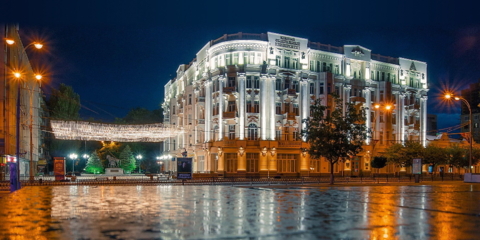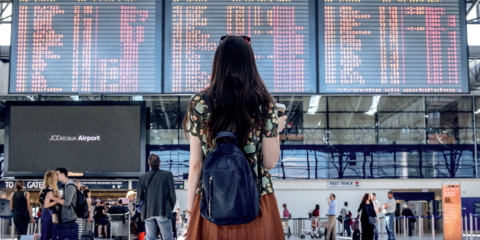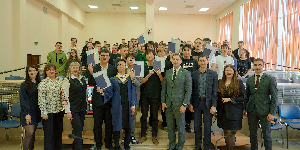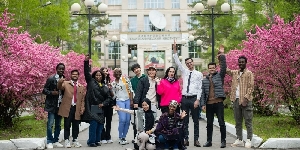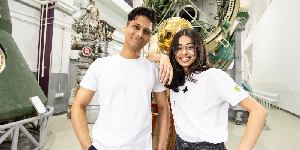Higher education in Russia is a solid foundation for building a future career. Today, Russian universities are ranked among the world leaders in such an area of science as mathematics, where Russia is traditionally strong, as well as in sociology, politics and international relations, economics and econometrics, computer science and information technologies, mining sciences, and mining engineering (engineering in mining industry and extraction of mineral resources), mechanical engineering, automation and control, education. Russian universities are ranked among the world’s most prestigious universities and offer high-quality education recognized in all countries. Read more about Russian universities’ positions in global rankings in our crib for rankings.
About Russian Education

On average, 8 of 10 graduates of Russian universities find a job within the first year after graduation.
An international student portrait*
Over 42% of students initially wanted to study in Russia.
27% of respondents are sure that Russian education offers education of superior quality.
Around 20% of young people would like to stay in Russia after graduation.
Around 14% noted that universities in their countries didn’t offer the study programs they need, and tuition fees were notably higher.
24.3% choose study programs in the field of natural sciences and computer science. Among the leaders also were economics, management, law (19.6%), humanities (17.9%) as well as medicine and pharmacy (14.7%).
Most respondents told that they really liked the quality of teaching at Russian universities and the special student atmosphere. Many of them paid attention to universities' high positions in rankings and prestige.
Around 75% are representatives of the CIS countries, the Baltic states, and Georgia. In recent years, positive dynamics of students from Europe, Asia, America, and Africa can also be observed.
*According to a study by the Sociocenter (2018).
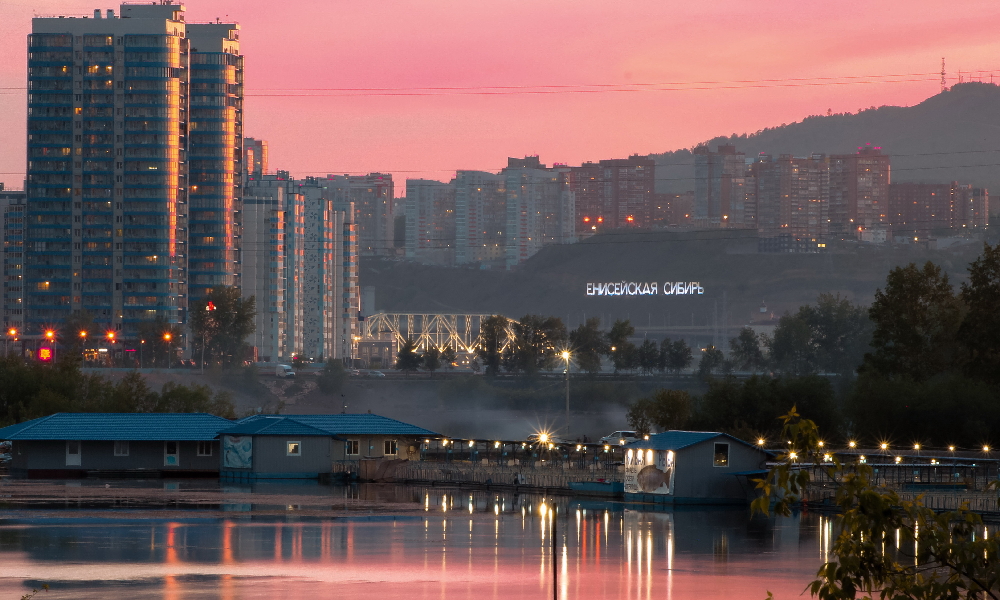
Education in Russia is not just traditional academic lectures. It includes workshops, masterclasses from leading experts of Russia and the world, academic projects, work placements and internships at major companies, classes in innovative laboratories, and state-of-the-art classrooms using cutting-edge equipment.
Russian scientists have greatly contributed to world science, have made first-rate scientific discoveries in various subject areas, and have been awarded over 20 Nobel prizes including prizes for medicine, physics, chemistry, economics, literature, and peace prizes. The most complex global-scale projects have been turned into reality – for the first time ever outer space was explored and the manned spaceflight was carried out. The electric bulb, radio, TV, a gasoline engine, color photography, and many other things were invented. Unique methods for diagnosis and treatment of diseases are regularly developed as the development of healthcare is one of the top priorities of the Russian Government.
Universities develop student research by leaps and bounds. Students have access to the largest state-of-the-art laboratories and research centers as well as innovative technologies such as 3D modeling and printing, robotics, virtual reality equipment. Russia develops IT creating new jobs for young professionals.
According to open-source data
